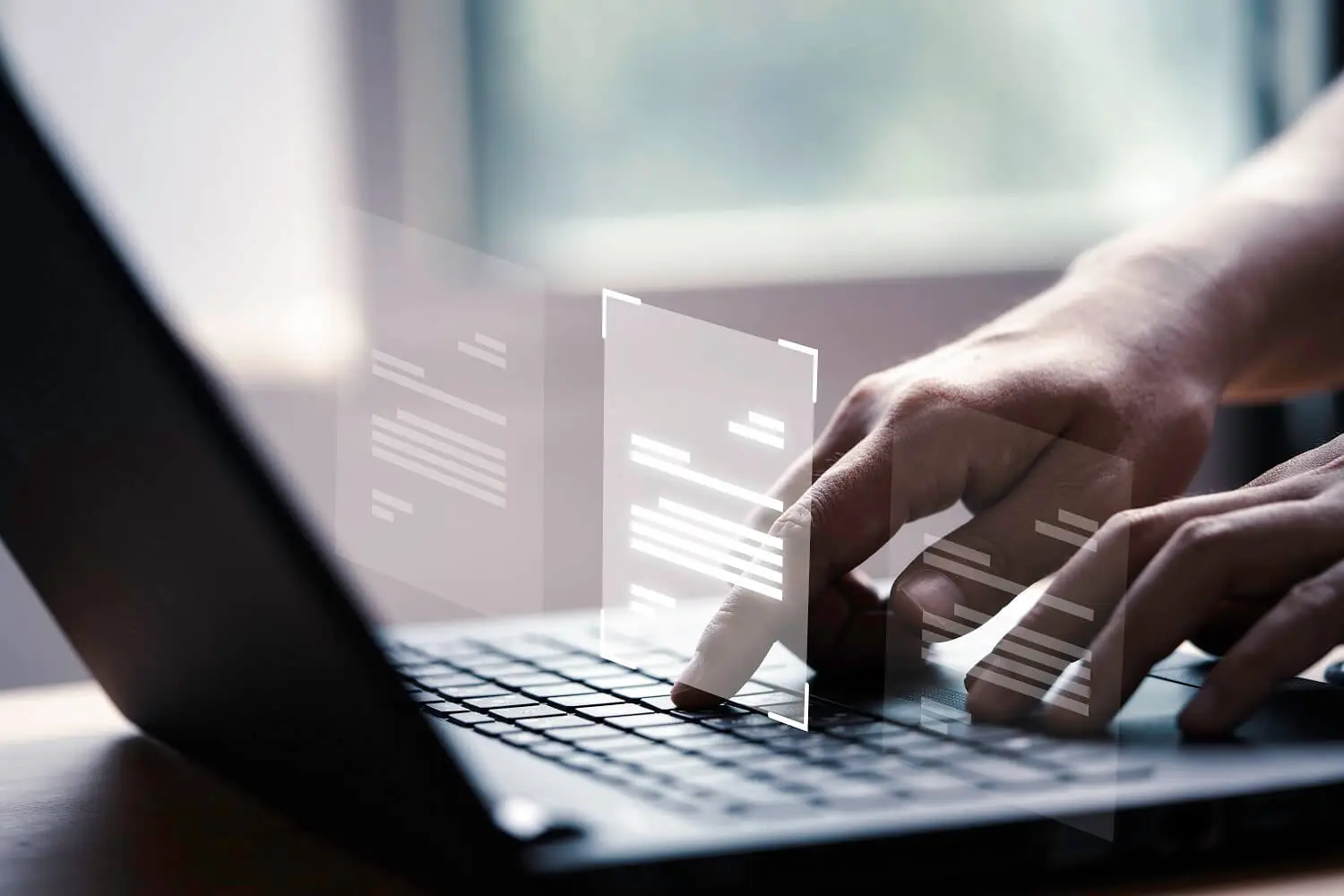The new electronic invoice law in Serbia has brought many changes to invoicing. Until now, invoices were sent in paper form by mail or in .pdf format via email. With digitization, there is modernization in this area, which is why e-invoicing is increasingly being introduced into the business world.
E-invoices in Serbia
For companies that already have ERP/CRM, we provide a solution to keep their software and connect it to our service through an API or a virtual printer (which is our unique solution for companies that cannot afford to adjust or replace their software) and thus enable e-invoicing!
We offer a complete solution for professionals, small, medium, and large enterprises.
With e-Invoices Online, you can create and receive e-invoices and automatically send them to the SEF portal and store them in the e-archive, thereby complying with all legal changes.
An e-invoice is not just a digital version of a regular paper invoice but an .xml document composed of all the data found on a regular invoice. Data can be sent and automatically entered into various databases, speeding up the required booking procedures, accelerating national and international communication, and freeing us from manual inspection, certification, and transcription into billing programs. All of this brings significant cost and time savings, reduces the number of employees, shipments, and printing. The entire e-invoice archive can now be stored in the cloud.

When do e-invoices come into effect?
Every company in Serbia that does business with the public sector (B2G) or with other companies (B2B) must, as of May 1st, or July 1st for B2B, provide a solution for creating e-invoices and deliver each e-invoice to the national portal called the Electronic Invoice System, from which its customer can retrieve it if desired. As of January 1, 2023, companies must also be able to issue e-invoices to companies in the private sector.
You can read more about e-invoice deadlines or check a brief overview in the table below.
| Obligation of private sector entity | Start Date |
| Issuing an electronic invoice to a public sector entity (budgets and public companies) | May 1, 2022 |
| Receiving and storing electronic invoices (issued by public and private sector entities) | July 1, 2022 |
| Issuing an electronic invoice to a private sector entity | January 1, 2023 |
| Recording VAT calculations, except for transactions involving a public sector entity | January 1, 2023 |
| Obligation of public sector entity | Start Date |
| Issuing an electronic invoice to a public sector entity | May 1, 2022 |
| Receiving and storing electronic invoices (issued by public and private sector entities) | May 1, 2022 |
| Recording VAT calculations, except for transactions involving a public sector entity | May 1, 2022 |
| Issuing an electronic invoice to a private sector entity | July 1, 2022 |
Frequently Asked Questions
- Are e-invoices sent via email in PDF or JPG format?
- What is SEF?
- What is .XML format?
- Why do we need the SEF Electronic Invoice System?
- What are the penalties for not updating the e-invoice program?
- Who are voluntary users of the SEF Electronic Invoice System?
- How long are e-invoices kept between the public and private sectors?
No, e-invoices are sent in .XML format via SEF.
SEF Electronic Invoice System allows you to send e-invoices to your clients. The state reviews all e-invoices in the country through SEF. E-invoices are sent in .XML format, with an added PDF as an attachment.
XML format is a simple text file with invoice data. It integrates more easily into electronic systems than data from JPG or PDF formats. It is based on the UBL 2.1 standard, also used in Europe.
Management of e-invoices: issuing/sending, receiving, storing, acceptance/rejection - applies to public sector entities (government institutions and public companies) and private sector entities, considered VAT payers under the law.
VAT registration: VAT registration by taxpayers under the Value Added Tax Act, which, in addition to public and private sector entities under the law, also includes legal entities and entrepreneurs who are not VAT payers (e.g., entities not in the VAT system are considered taxpayers for services received from abroad).
Important note: Issuing e-invoices and registering VAT in the electronic invoice system do not affect the obligations of filing VAT returns and completing the VAT return form, which taxpayers are required to do in the same way as before the Electronic Invoicing Act was enacted.
Penalties range from 50,000 to 2,000,000 dinars and apply to legal entities - private or public sector entities, entrepreneurs, information intermediaries, as well as responsible persons in legal entities. Penalty provisions are prescribed in articles 18-21 of the Electronic Invoicing Act.
Legal entities and entrepreneurs who are not in the VAT system. [More about this here.]
In the public sector, e-invoices are kept permanently, and in the private sector, they are kept for 10 years.
Do you have more questions?
e-Invoices Online offers 3 solutions for invoicing:
1. Creating invoices on the WEB
Our solution offers creating e-invoices in an intuitive and visually adapted manner. It is extremely easy to use while offering powerful user functionalities for companies with larger item registers. Created e-invoices can be sent directly from our service to the government portal, to your client, or saved in the service. The service also offers an e-archive, allowing you to securely store all your invoices in the cloud, meeting legal requirements for such an archive.
For professionals and small businesses
We recommend the BASIC package for self-employed entrepreneurs and small businesses that have previously invoiced using text or spreadsheet programs. With it, they can easily and quickly create invoices in a web browser, securely store all invoices in one place, and send them to the national portal simultaneously.
Medium and large companies
For companies with larger needs, such as sending invoices abroad, creating item registers, adding attachments, etc., we recommend the PROFESSIONAL and BUSINESS packages. Among other things, the BUSINESS package allows for preparing and sending all e-invoices with one click and automatically storing invoices in the e-archive.
2 and 3. For companies with ERP or CRM programs
For companies that already have their own ERP and CRM programs customized to their needs and only need to generate e-invoices and submit them to the SEF portal!

Some companies already have their own billing software, which they are familiar with and do not want to change their workflow, but they must comply with legal requirements. Changing such software would be costly and time-consuming for companies, so they really don't want to do that.
For them, we provide a connection channel via API so they can connect their ERP to our service, and invoices created in their ERP will be easily displayed in our service, from where they can be sent wherever needed. All they need to do is contact the authors of the software they currently use, provide them with simple APIs, and the author can integrate the connection channel into their solution within one day! (Available in PROFESSIONAL and BUSINESS packages.)
However, as practice shows, this is not always possible. Especially for large companies that have been on the market for years, they have developed or even commissioned software designed specifically for their needs, which they do not want to change under any circumstances, and the authors of this software cannot integrate our APIs into their billing software. For this reason, we offer a connection channel via a virtual printer. This allows billing software to remain completely unchanged, while companies can create and distribute e-invoices to the desired destination. With the help of a small program called a virtual printer, where companies "print" the invoice, intercept it, and then send it to our server, where the data is extracted from the invoice and converted into an e-invoice. The invoices then appear in our service, from where you can send them to the desired destination. This solution is customized for each company after an initial meeting and is available in the CUSTOM package.
You can also test and try our service (except for connecting via a channel since your ERP system is required) in the Demo company to ensure that you are truly 100% satisfied.
Prepare for e-invoicing
The new law introducing mandatory e-invoicing is the next step in modernizing the Serbian economy. This change is beneficial for both the government and companies using SEF. The deadline for all mandatory companies to switch to e-invoicing is rapidly approaching on January 1, 2023. Make sure you are ready for the upcoming changes and find the best solution for your business offered by e-Invoices Online.
For all technical information, situations, and general details regarding e-invoices, please review the list of frequently asked questions and answers.






